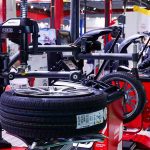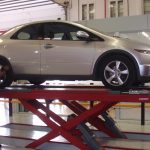To many, self-employment seems like a dream come true: setting your own schedule, making your own rules, and not ever having to worry about being fired. But like all things in life, there’s always a trade-off. Managing your own business can be a wonderful experience for those who are prepared to make smart, calculated decisions. For those who rush in headfirst, they may join the ranks of failed startups.
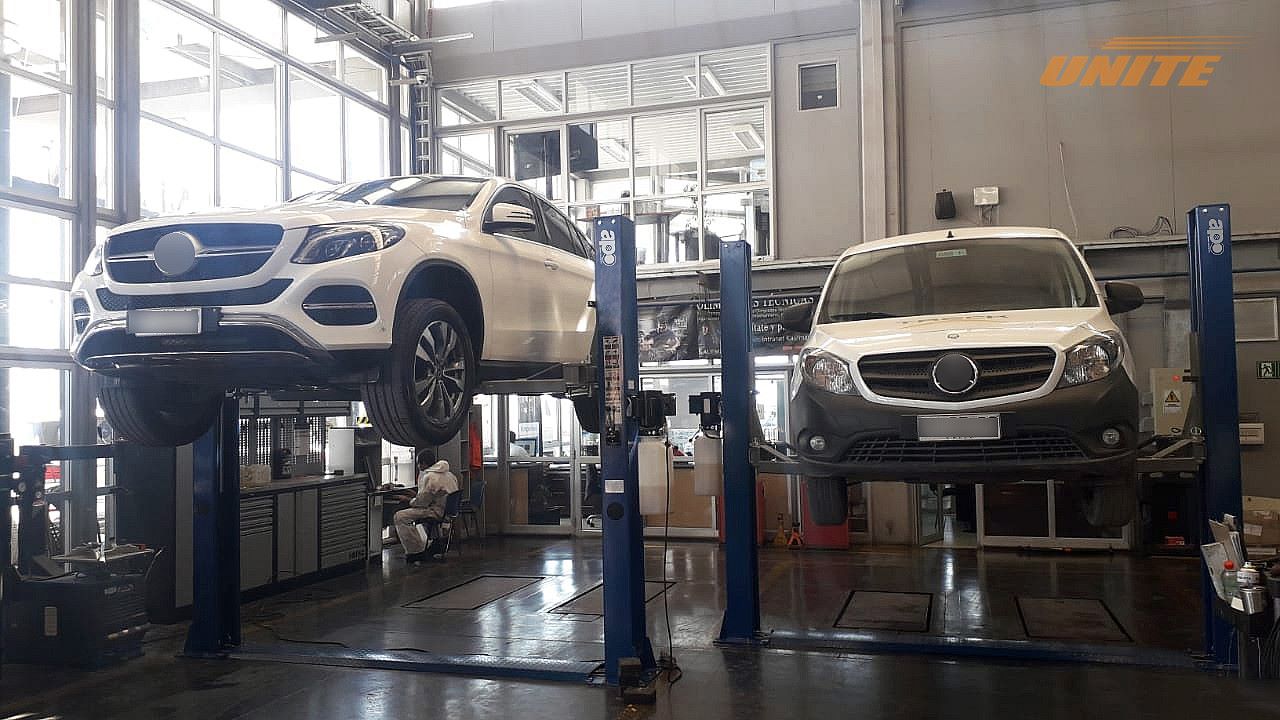
APO vehicle service equipment in the workshop
While there’s nothing that will guarantee success in the small business world, there are some ways to give yourself an advantage. If you’re seriously considering opening your own automotive repair shop, then you’ll want to check out these five tips on what you should do and what you should know to get your business off the ground.
1.KNOW THE PITFALLS
There are always going to be unexpected setbacks when running your own business. Unfortunately, many of them you cannot predict or prepare for. With that in mind, arming yourself against all the issues that you can foresee can keep you from floundering later on under too many problems.
One of the biggest issues that new businesses run into is capital. The cheapest cost estimate for starting your own business is about 3,000 dollars (and that’s for a home-based, micro-business, which an auto body shop most definitely is not). While it’s true that you can (and will probably have to) go into debt to get all your overhead taken care of, it’s smart to have as much money saved beforehand as possible. Starting your own shop is not something you can do when you’ve just rage quit your current job and you have 100 dollars to your name.
Another common mistake new business owners make is over or under-investing. You need to find the perfect sweet spot between shooting for the stars and thinking practically. If you low ball it, you may not see enough business, but if you invest too much too quickly, you may not be able to sustain your forced growth. So put some serious research and thought into how big or small your repair shop needs to be successful. This will depend on a lot of different factors like location and resources.
And don’t forget to acknowledge that you’re only human. You will get sick, you will need vacation time, and you will have family emergencies that you need to leave work for. Many small business owners forget to take this into account. You need to have a plan in place for when you won’t be in at work. How much work are you willing or able to do from home? Who else in your business can take over your daily tasks if needed?
Talk to other people in the industry about their experiences. Like they say, learn from others’ mistakes so you don’t have to make them yourself. Even if you don’t know anyone who has specifically opened an automotive shop, getting involved with small business owners in other industries can help you prepare for and even avoid many potential pitfalls.
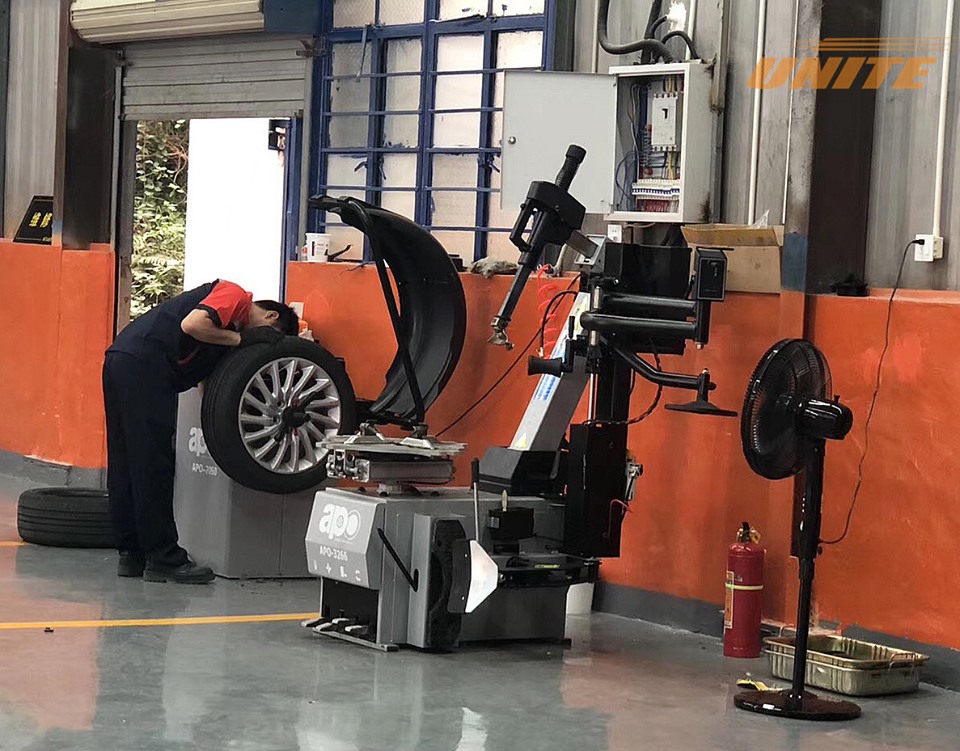
APO vehicle service equipment in the workshop
2. RESEARCH THE LAW
Dibujo para colorear BombillaThis is the least fun part, but you’re going to need to delve into the legal side of everything before you think about starting your own shop. There are many hoops to jump through, on both the federal and state level. Insurance, taxes, zoning laws — you name it, and there’s probably a legal issue surrounding it.
It’s not always scary, though! Sometimes, there are legal benefits to opening your own business. For example, many areas offer special perks and benefits to small businesses that contract with the government or serve underrepresented areas. So make sure you’re not missing out on any sweet opportunities like being the go-to service station for government vehicles.
Also, be extra prepared for tax season. Income tax for business owners is significantly different from the taxes you put up with when you’re an employee. Be prepared to be hit double with taxes as a business owner, since you’ll need to account for business taxes as well as income taxes. There are also a lot of decisions to be made when running your own business. Are you going to assign yourself a specific salary or not? This decision will greatly impact your yearly taxes.
You’ll also need to consider caring for your employees. Unless you’re going to do everything yourself (and that’s definitely not recommended), then you’ll be needing at least several employees. Depending on where you live, there will be different requirements for insurance, benefits, wages, etc. Make sure you have a pretty concrete estimate of the yearly cost of an employee before you start estimating overall business costs.
Don’t forget to factor in the extra costs for training and orientation periods. Will your employees require a certain level of education or a certification of some kind? Are there laws in your area that change depending on how many employees you have? Don’t leave yourself to discover these legal quirks by accident when they become a problem. Do your research ahead of time.
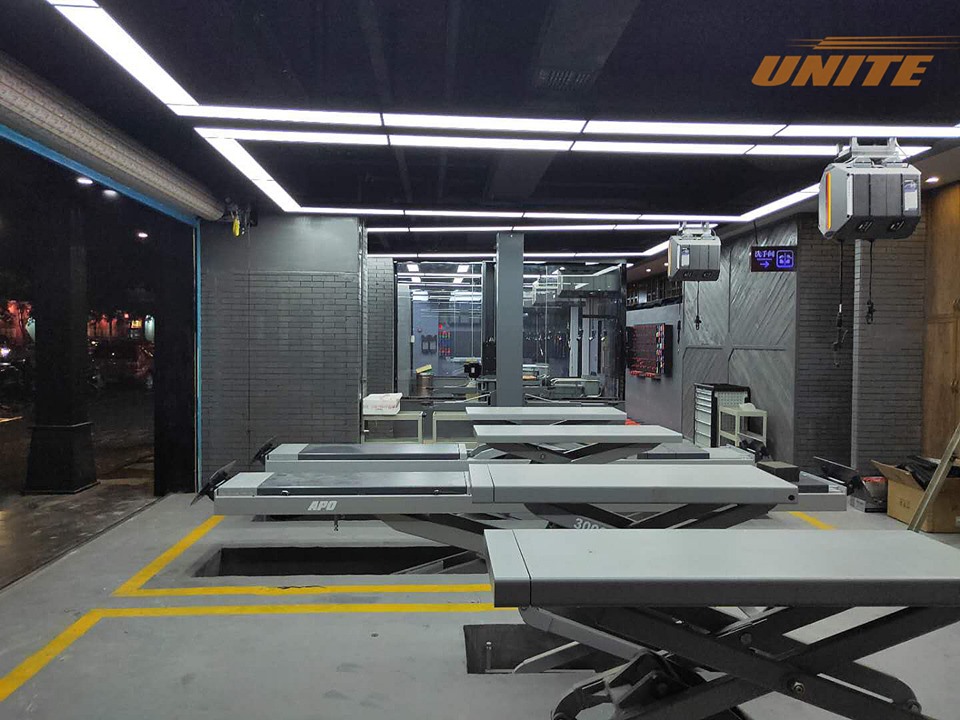
3. DON’T GO IT ALONE
If you’re still game to make your mark on the business world, even after learning all the risks and headaches that may follow, then it’s time to start seriously considering who you’re going to go into business with. That may sound counterproductive. After all, you probably decided to open your own shop because you want to do things your way. But this can’t be overstated: you’re going to need help, especially with an automotive shop. There’s just too much going on, and no one person can manage it all without tearing their hair out.
Picking the right people to go into business with can make or break your venture. It may seem smart to team up with like-minded friends or colleagues, but this isn’t always the right solution. Before you seriously consider a business partner, remember all the research we talked about above. There’s a lot that goes into running an automotive shop besides knowledge of how to properly wield a wrench. Taking all that into account, identify what your weaknesses are, and then look for a partner who will help cover those areas. Are you a mechanical expert? Then, instead of partnering with another garage worker, consider teaming up with someone whose background is more in business management or finance.
Bear in mind, that this won’t excuse you from number crunching. You’ll need a solid understanding of the “business” angles of your shop even if your partner takes up most of the responsibilities in those areas. Because there’s always more desk work to be done and because you’ll want to know what’s going on in your shop.
Business partners aren’t the only resource you’ll want to check out before you sign any papers. Don’t deprive yourself of the many useful educational resources available. Make sure you’re starting off with every possible tool in your belt. Do some research around your area, or even online, and see what kinds of low-cost or free educational opportunities are out there. Many people have an aversion to educational courses post-graduation, but they can be the difference between success and failure in the small business arena. Look for resources in the following areas.
Management training
Business classes
Mentors or peers in the industry
Seminars
4.SET YOURSELF APART
A huge percentage of small businesses fail in the first few years. Small businesses can’t afford to take the same kinds of financial hits that larger businesses can; they just don’t have the resources to cushion the blow. As a result, a small business mimicking the model of an established, larger business is going to fail every time. What you need to do to give yourself a fighting chance is to set yourself apart from the competition. If people are already familiar with a larger, successful automotive repair shop, they’re going to need convincing to hop ship over to your place. People are creatures of habit, and they don’t often change up their habits without a reason.
The options are endless, and once you’ve decided on what your outstanding quality is, make sure it is integrated wholly into your marketing and publicity. You want everyone to know just why you’re different than the competition and why you’re preferable to every other shop in town. Again, think less gimmick and more unique identity. Even if they’ve forgotten your shop’s name, customers should be able to accurately describe you to their friends and relatives in such a way that you’re instantly recognizable.
5.GET COMFORTABLE WITH MONEY
If you want to open your own automotive repair shop, odds are that you’re a car person. But if you’re going into business (any business), then you’ll need to also become a money person. Businesses run on money. There won’t be a day that goes by where you aren’t calculating something in your head. Even if you partner with someone with strong financial skills, you’ll still need to do a lot of the money juggling yourself. Consider the following points:
●How much does your shop cost to run daily, weekly, monthly, quarterly, and yearly?
●What’s the minimum overhead you’ll have to spend to get started
●You’ll be starting out in debt. How long before you’re in the black?
●How much can you afford to offer your employees and how many employees can you afford?
And that’s just a few of the money concerns you’ll be tackling on a regular basis. You need to know how much money you’re taking in, what you’re spending, and what your projections are for the foreseeable future so you can plan for expansions, growth, or just general upkeep.
And again, don’t feel like you need to tackle all these problems completely solo. There are scads of great software tools out there to help you manage all this. In fact, they make accounting and money managing tools specifically for small businesses. And don’t forget, now that you’re an official business, you’ve graduated beyond the world of doing your taxes for yourself. Hire a business tax firm to keep all your taxes straight so you don’t run into trouble with the IRS.
DON’T BE DISCOURAGED, JUST BE PREPARED
If you’re determined and capable, then don’t let all these warnings stop you from following your dreams. Even with all these considerations taken into account, it still won’t be easy owning and operating your own business, but where there’s no hard work, there’s no reward, right?
There are many more things to consider when going into business, of course. This is all just a taster. So if you’re serious about your own automotive repair shop, your planning doesn’t stop here. Keep researching on your own to give yourself the best chance possible. The more knowledge and preparation you enlist beforehand, the smoother your journey to self-employment is going to be.
Editor’s Note:
APO is the subsidiary brand of the BALANCE group, aims to provide professional products and services.
22 years’ experience in design, R&D and manufacturing automotive maintenance equipment
Professional global provider of tyre changers, wheel balancers and car lifts
Comments are closed.

